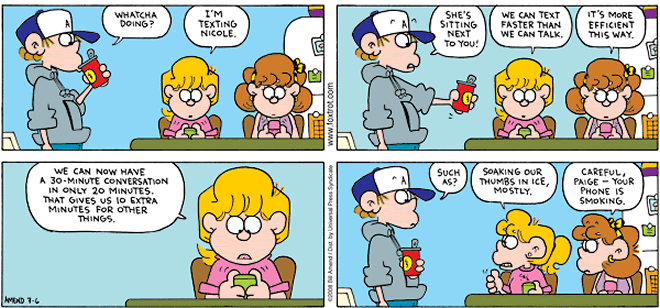Wake up! There's a Kolmogorov complexity trough!
At some time after my breakfast tomorrow morning, as I get ready to leave for my office at the University of Edinburgh, the moment will suddenly arrive when the exact time and date (in all day/month/year syntax formats) is 08:08:08 08/08/08. Why does that seem so special and noteworthy?
I know that in Chinese the number 8 sounds like the word meaning "prosperous"; but that can't be relevant, because I know almost nothing of Chinese — I can't even tell whether a sign says ‘dining hall’ or ‘translate server error’. And of course there is nothing cosmically interesting about any particular date or time: the time will be different in each different time zone, and the date will be different in some of them. It's not a matter of rarity either: every time/date combination is exactly as rare as every other. Yet it still seems like it would be really cool to send out an email, or post to Language Log, with a 08:08:08 08/08/08 time stamp (though the server would probably have the time wrong by a few seconds, which would screw things up)… or to take Barbara her morning coffee at exactly 08:08:08 on the morning of 08/08/08.
Read the rest of this entry »


